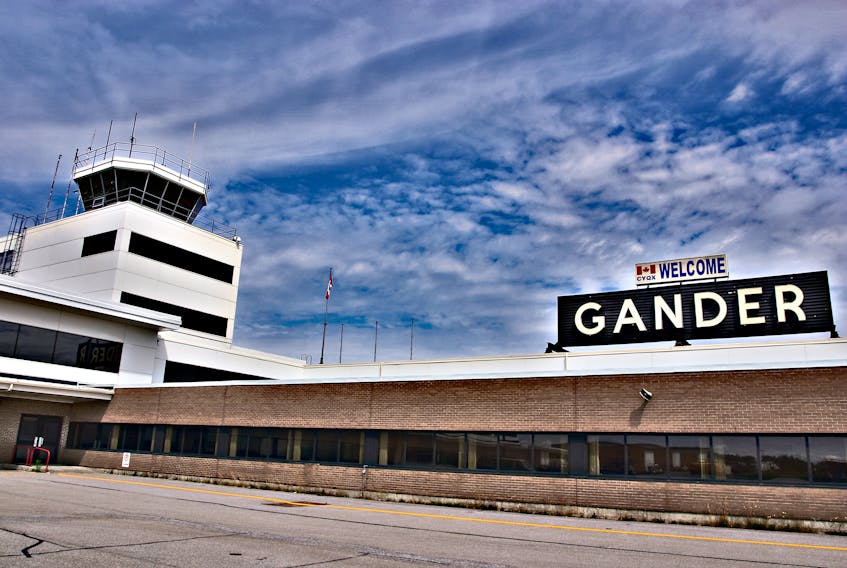The Town of Gander and the Gander International Airport Authority noted Wednesday Air Canada’s departure from the airport ends 80 years of service to the central Newfoundland town.
The daily Gander-to-Halifax flight will end Jan. 23. According to a Wednesday news release out of Gander, at peak pre-pandemic levels, Air Canada offered four destinations with nine daily departures from the town's airport.
After Jan. 23, the airport will be without scheduled service to mainland Canada, though service to St. John’s and Goose Bay will continue to be provided by PAL Airlines.
“The new year continues to hold bad news for our sector,” Gander International Airport Authority CEO Reg Wright said.
“Tightened federal and provincial travel restrictions are choking off the little bit of travel demand there is.”

Air Canada announced capacity and workforce reductions Wednesday due to the impact of COVID-19 restrictions. Included are all its flights in and out of Goose Bay, Labrador.
A news release stated that as a result of system-wide changes — 25 per cent reduction in capacity for the first quarter of 2021 — there will be a workforce reduction of approximately 1,700 employees, in addition to the more than 200 affected employees at its Express carriers. The airline says it is working with its unions on mitigation programs.
Several routes are affected in Newfoundland and Labrador.
”We regret the impact these difficult decisions will have on our employees and on the affected communities,” the airline said on social media.
Premier Andrew Furey addressed the Air Canada situation at Wednesday’s COVID-19 provincial update.
"Early this morning, I spoke with Happy Valley-Goose Bay Mayor Wally Andersen and Gander Mayor Percy Farwell,” Furey said. “We talked about the blow this is to their communities, and I gave them my assurance that I would continue to tackle this issue with the federal government.”
Furey said he also spoke on Wednesday with federal Transport Minister Omar Alghabra, Intergovernmental Affairs Minister Dominic LeBlanc and Natural Resources Minister Seamus O’Regan, who is also Newfoundland and Labrador’s representative in the federal cabinet.
“I raised my concerns about Air Canada’s decision, given the importance of air access to this province,” Furey said. “This is not just about public health and safety — although it is — but also for local industry, the economy and the province’s dear rotational workers who rely on this service.
“All three federal ministers say they are seized with this important issue. The transport minister said even though he’s been in the job less than 24 hours, he recognizes the significance of this and takes it very seriously. He said they’re doing everything they can to ensure regional access and secure jobs for the entire region and Newfoundland and Labrador.
“We’re at risk of living in a country that ends in Halifax if the cost and time it takes to get to our province continues to go up." — PC MHA Chris Tibbs
“And I’m confident that they will continue to work with that industry, and with Air Canada in particular, to find a resolution, to protect those routes as we emerge from the pandemic, which is most important for industries like tourism for Newfoundland and Labrador.”
Progressive Conservative MHA Chris Tibbs stated in a news release that with less air access to Newfoundland and Labrador, the cost for people coming to the province will increase.
“We’re at risk of living in a country that ends in Halifax if the cost and time it takes to get to our province continues to go up,” he said. “It means jobs in the tourism industry are on the line.”
Tibbs, a rotational worker for 17 years, said he is worried the increased cost of travel could force rotational workers to uproot their families and move westward.









